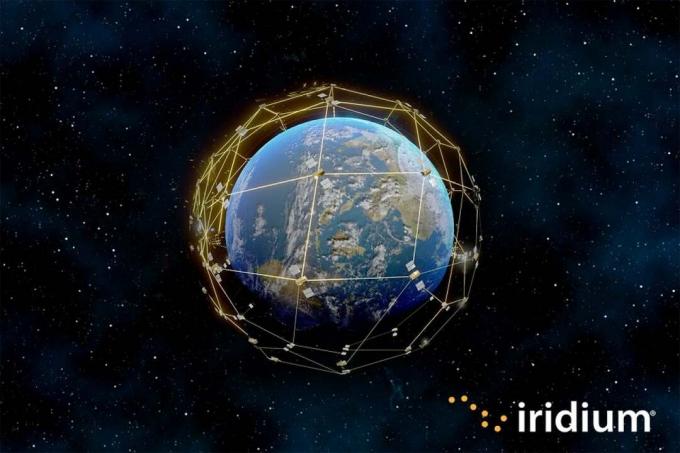At the beginning of November, more specifically on the 9th, Iridium and Qualcomm announced the end of a partnership that would lay the foundations for the first smartphones with market satellite connection. The complete break will take place on December 3rd.
Iridium is a company dedicated specifically to the satellite communications sector. Currently, the company controls 66 satellites that operate in low Earth orbit.
see more
Several iPhone models will be 'abandoned' in 2024; see if yours is…
IQ Challenge: Spot the dog among the teddy bears in just 11…

Representation of Iridium's satellite network. (Image: Iridium/Qualcomm/disclosure)
On the other hand, Qualcomm is one of the largest chip manufacturers on the planet, being responsible, among other things, due to the famous line of Snapdragon processors, which equip countless smartphones of different brands.
In January 2023, at the CES fair, the two companies announced preparations for the creation of the Snapdragon Satellite platform. In other words, the announcement of the breakup came less than a year after confirmation.
At the time, it was stated that the platform would enable high-end smartphones to send emergency warnings and SMS via satellite initially.
According to a statement from Iridium, the agreement was canceled due to a lack of interest from cell phone manufacturers in including Snapdragon Satellite in their models.
In turn, Qualcomm did not formally comment on the situation, but, upon receiving Iridium's opinion, it accepted the situation and chose to terminate the contracts it had signed.
According to Matt Desch, CEO of Iridium, despite being frustrating, the failure of the Qualcomm deal does not mean that the idea of creating a satellite connection on smartphones has diminished.
“While I am disappointed that this partnership did not bear immediate fruit, we believe there is a clear industry direction regarding increased satellite connectivity in consumer devices,” said he.

With Snapdragon Satellite, connecting to remote locations would be simplified. (Image: Freepik/reproduction)
Now we just have to wait and see if this technology, which to a certain extent is quite necessary, will receive investment and will become everyday like so many others that were once just a promise.
* With information from PCMag, Android Police and Tecnoblog
Graduated in History and Human Resources Technology. Passionate about writing, today he lives the dream of working professionally as a Web Content Writer, writing articles in several different niches and formats.
